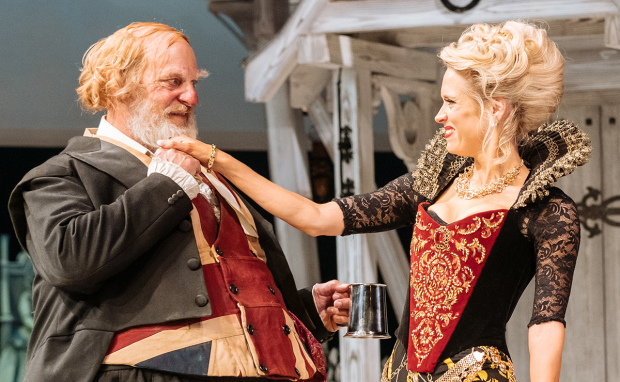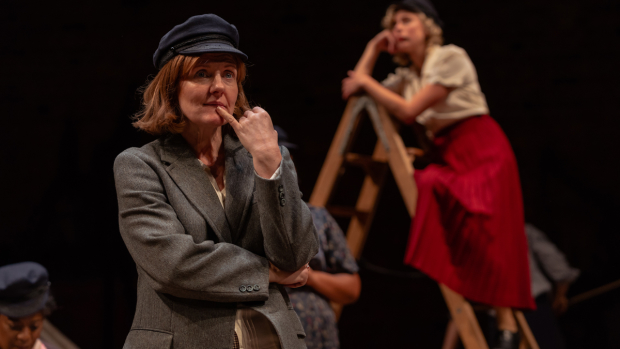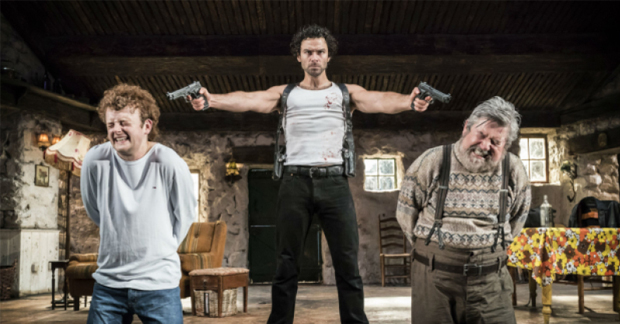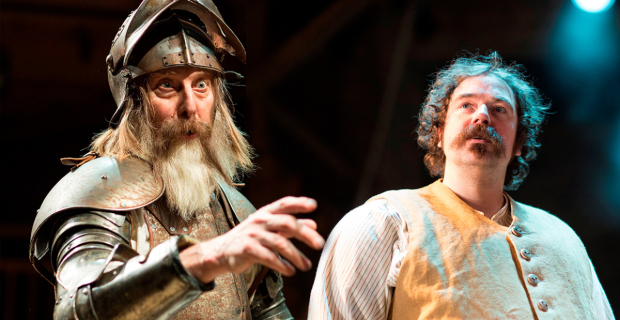Review: The Merry Wives of Windsor (Royal Shakespeare Theatre)

© RSC, photo by Manuel Harlan
If I were Laurence Marks and Maurice Gran, I'd seriously consider tapping up the RSC for a share of the royalties in this production of The Merry Wives of Windsor: it borrows so heavily from Birds of a Feather as to be virtually an extended episode of the ever-popular sitcom.
Transposing Windsor to Essex in a kind of parallel modern-day universe, director Fiona Laird makes much of the TOWIE influence, complete with Chigwell accents, high heels and leopard-print dresses. There's even a score of sitcom-style transition music, composed by Laird herself, with the twist that it's performed on a mixture of distorted electric guitars and authentic Elizabethan instruments.
Much of this seems intended to render Shakespeare accessible to a modern – and especially young – audience, a laudable aim in itself. But it's a shame that much of the concept depends on inserting easy gags and Benny Hill-style slapstick routines, at the expense of trusting Shakespeare's natural comic instinct for the laughs. Thus we get Brexit jokes, cartoonish visuals and even a pair of surtitled Polish plumbers who are secretly working on their PhDs.
In fairness to the extraordinarily hard-working company of actors and musicians, what they do, they do incredibly slickly and impressively. David Troughton's Falstaff is a model of comedy timing and irrepressible pathos – not to mention a triumph of fat-suit engineering – while Beth Cordingly and Rebecca Lacey (unbelievably in her RSC debut) make a superb pair of Essex wives.
Among the talented ensemble, Vince Leigh's jealous husband Ford and Jonathan Cullen's endlessly entertaining Dr Caius – channelling John Cleese's French taunter from Monty Python – stand out, but there is plenty of strength in depth across the entire cast. Lez Brotherston's vivid, in-yer-face design brilliantly melds mock Tudor with Milan catwalk and his costumes are among the highlights of the whole production.
The storytelling is clear, the knockabout comedy broad and unsubtle, and there's a lingering sense of everything being aimed at the lowest common denominator, from Falstaff's outrageous codpiece to the shocking pink wheelie-bin that replaces Shakespeare's original laundry basket prop. But in the end, the relentless onslaught of visual, verbal and vulgar gags prevails, and the audience is won over by the sheer exuberance of everyone involved.
It may not persuade the purists and it might not satisfy the sceptics, but it's just possible that neither of these groups is the target audience. If you like your comedy without too many niceties and your Shakespeare in easily digestible form, then these wives are likely to look pretty merry.

















